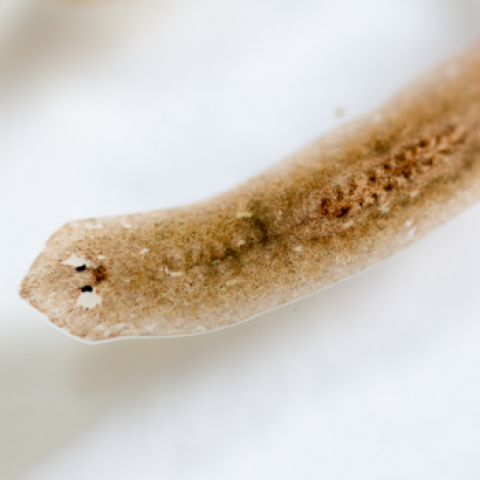Interdisciplinary Initiatives Program Round 9 - 2018
Bo Wang, Bioengineering
Nicholas Melosh, Materials Science & Engineering and Photon Science Directorate
Andrew Fire, Pathology and Genetics
In the U. S. alone, neural damage affects 50 million people yearly as traumatic injury and degeneration, but research in this biomedical area is burdened by the lacking knowledge of the mechanisms guiding neuronal regrowth particularly in the brain. While brain regeneration is biologically limited in most animals, planarians have been studied for over 100 years for their unsurpassed ability to regenerate anew from a small fragment of an adult animal. However, the progress has been constrained by the lack to transgenic tools in the planarian despite of decades of attempts. Here, we propose to integrate nanotechnology, genetics, and somatic stem cell transplantation to address this long-standing challenge. This proposal is enabled by the recent technical advances made in our laboratories and a new collaboration that integrates our diverse expertise in developmental biology (Bo Wang, Bioengineering), nanotechnology (Nicholas Melosh, Materials Science and Engineering), and genetics (Andrew Fire, Pathology & Genetics). The impact of this study is expected to be twofold. First, we will provide a new method to genetically transform animals through somatic stem cells, which often have effective mechanisms to defend against foreign genes; second, transgenic planarians will open the door for watching neurons differentiate, connect, turn over, and migrate during the brain regeneration in a way never before possible; these results will begin to unravel mechanistic details underlying the temporal and spatial coordination of a wide variety of cellular events during brain regeneration.




